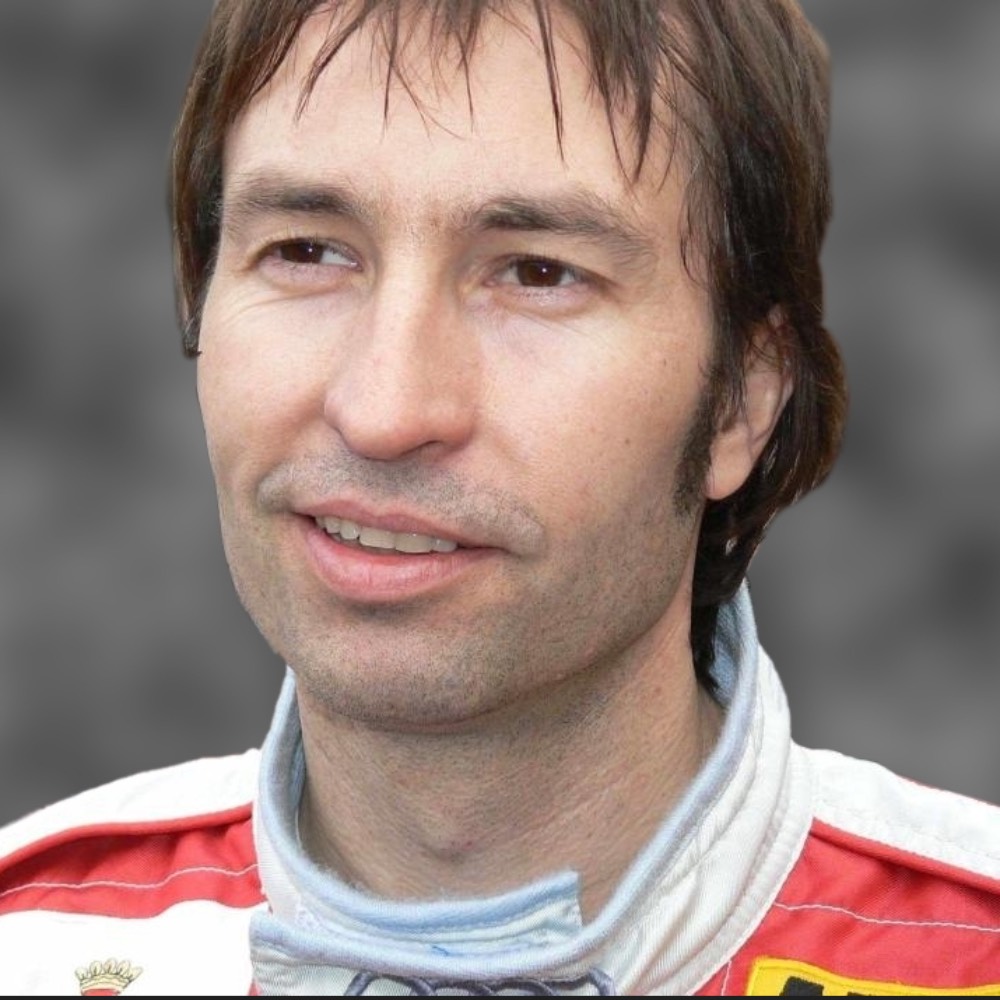
Heinz-Harald Frentzen
Career Statistics
Biography
Heinz-Harald Frentzen (born 18 May 1967) is a German former racing driver who competed in Formula One from 1994 to 2003, achieving three Grand Prix victories, two pole positions, 18 podium finishes, and 173 championship points while driving for Sauber, Williams, Jordan, Prost, and Arrows, with his career representing tremendous unfulfilled potential as he finished runner-up in the 1997 World Championship and third in 1999, demonstrating world-class ability when provided with competitive equipment but ultimately never securing a World Championship despite possessing talent that many contemporaries believed rivaled that of his childhood rival Michael Schumacher. Born in Mönchengladbach, West Germany, to a German undertaker and a Spanish mother, Frentzen began racing at age 12 in karting, winning several titles including the junior direct-drive German Kart Championship, and he progressed to junior formulae in 1985, competing in Formula Ford before moving to German Formula Three.
The 1989 German Formula Three Championship brought Frentzen national attention as he engaged in an intense three-way title battle with Karl Wendlinger and Michael Schumacher, finishing runner-up in a season that demonstrated he possessed speed comparable to Schumacher, who would later become a seven-time World Champion, and this rivalry established Frentzen as one of Germany's brightest young racing prospects. Rather than immediately pursuing Formula One, Frentzen spent three seasons racing in Japan in Formula 3000 and sportscar championships, gaining experience and financial backing while most of his European contemporaries moved directly toward Formula One, and this unconventional path meant he arrived in Formula One later than some rivals but with broader racing experience.
Frentzen's Formula One debut came with Sauber at the 1994 Brazilian Grand Prix, and he remained with the Swiss team through 1996, achieving his maiden podium with third place at the 1995 Italian Grand Prix at Monza and demonstrating consistent competitiveness that caught the attention of Williams team principal Frank Williams. In one of Formula One's most controversial driver decisions, Williams signed Frentzen for 1997 to replace World Champion Damon Hill, believing that Frentzen possessed greater long-term potential than Hill despite Hill having just won the championship, and this decision shocked the motorsport world and created tremendous pressure on Frentzen to justify Williams' faith in him.
The 1997 season with Williams saw Frentzen achieve his maiden Formula One victory at the San Marino Grand Prix at Imola and take several additional podiums, ultimately finishing second in the World Championship behind teammate Jacques Villeneuve after Michael Schumacher was disqualified from the standings for colliding with Villeneuve at the season finale, though many observers felt Frentzen underperformed given Williams' dominant car that season. The 1998 season proved disastrous as Williams suffered their first winless season since 1988 with the uncompetitive FW20 chassis, and Frentzen's relationship with the team deteriorated amid frustrations about the car's performance, leading to his departure at season's end in a swap deal that sent him to Jordan while Ralf Schumacher moved to Williams.
Frentzen's move to Jordan for 1999 revitalized his career, as he won races at the French and Italian Grands Prix and finished third in the World Championship behind Mika Häkkinen and Eddie Irvine, demonstrating that he could be a championship contender when provided with competitive equipment and a supportive team environment, and many believed he would challenge for the title in 2000. However, the 2000 season saw Frentzen struggle uncharacteristically for form, and his performances declined so dramatically that Jordan retained him for 2001 but ultimately lost patience and dropped him mid-season after the British Grand Prix, replacing him with Jean Alesi in a shocking move that saw Frentzen swap to Prost Grand Prix for the remainder of 2001.
When Prost went bankrupt at the end of 2001, Frentzen found himself without a competitive drive, and he spent 2002 with the struggling Arrows team before finishing his Formula One career in 2003 with Sauber, the team where he had started a decade earlier, bringing his ten-season Grand Prix career to a conclusion with three victories, two poles, six fastest laps, and 18 podiums. Heinz-Harald Frentzen's legacy in Formula One is complex and somewhat tragic: BBC Sport described him as a driver who 'never quite made the most of a brilliant natural talent,' and this assessment captures the frustration of a career that showed flashes of world-beating ability—his 1997 and 1999 seasons demonstrated he could challenge for championships—but which never achieved the sustained excellence that his early career promise suggested was possible.
Eddie Jordan praised Frentzen's performances in the Jordan 199, saying he did a 'great job,' and when Frentzen was confident and properly supported, he was capable of beating anyone, but his career was hampered by confidence issues, difficult relationships with some teams, and a tendency to underperform when under pressure, characteristics that prevented him from ever winning a World Championship despite possessing the raw talent. His childhood rivalry with Michael Schumacher inevitably shaped perceptions of Frentzen's career, as observers constantly compared the two Germans and noted that while both showed similar promise in German Formula Three, Schumacher won seven World Championships while Frentzen won just three races, though this comparison ignores that Schumacher enjoyed far superior equipment for most of his career and that Frentzen's talent was nevertheless genuine and world-class even if it never reached Schumacher's exceptional level.
Since retiring from Formula One, Frentzen has largely avoided the spotlight, making occasional appearances at historic motorsport events and maintaining connections with the sport while pursuing business interests, and he remains respected within Formula One circles as a talented driver whose career represented unfulfilled potential rather than failure, as even three victories and two championship runner-up finishes represent achievement that the vast majority of Formula One drivers never approach.